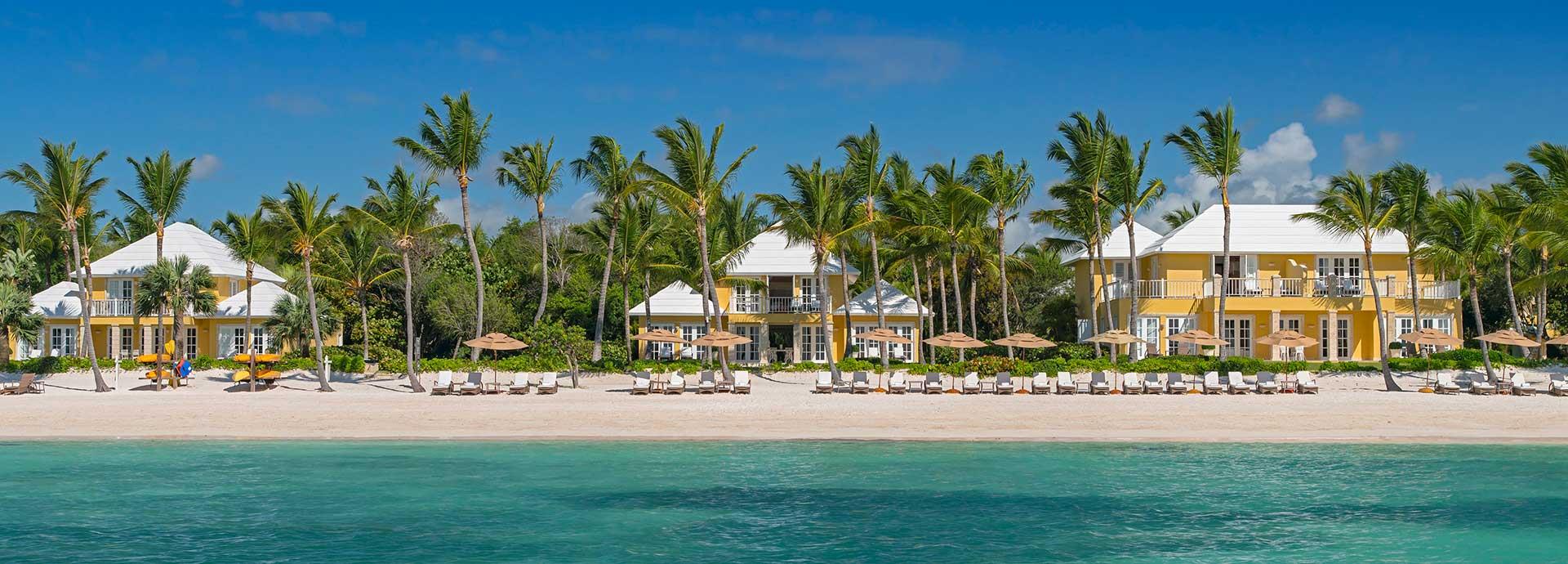

A partnership built on shared values and communication has been key to a Dominican resort’s energy transformation.
In 2004, Grupo Puntacana, a leading brand in the tourism industry in the Punta Cana region of the Dominican Republic, was generating its own energy with diesel engines dating from the 1950s. It quickly became clear that these were not enough to supply the energy needs of a fast-growing resort encompassing 42 square kilometres and an airport that receives 7.6 million passengers annually.
After developing a plan to expand its energy capabilities, Grupo Puntacana contacted Wärtsilä to make the plan a reality.
“We needed a trustworthy company who could secure our energy generation with a proven track record of quality equipment and services,” says Antonio Martorell, Director of Utilities, Water & Energy of Corporación Turística de Servicios Puntacana (CTSPC), the company that manages the energy and water contractors of Grupo Puntacana. “We also trusted them with the operation and maintenance of our power plant, as who could take better care of it than the supplier itself?”
Many of Grupo Puntacana’s clients are Americans and Europeans who own a second home in the resort, so the company was particularly concerned with providing services that met their clients’ high standards and expectations.
A laundrette, a snake, and a Mercedes Benz
Samuel Estévez, contract manager at Wärtsilä Dominicana, has led the power plant and its 21-member team since 2005. He says that 15 years ago, the energy demand in Punta Cana was only 4.5MW, but Wärtsilä foresaw that in the future, the fast-growing resort would require much more, so the company installed a 16-cylinder Wärtsilä 32 engine with a capacity to supply 7.2MW.
During the course of the first 10-year operation & maintenance agreement, Wärtsilä improved the reliability of the power plant to ensure that the resort meets the expectations of its customers in all circumstances. For example, the operational diversity of the power plant was enhanced by adding four circuits to the original one, allowing for extra coverage in case of failure. A SCADA (Supervisory Control and Data Acquisition) system to gather and analyse real-time data was installed for monitoring the levels of service in terms of frequency and voltage.
In 2007, Grupo Puntacana opened a laundrette, and Wärtsilä offered to take care of the value-adding operation and maintenance of the boiler room.
The partnership was not without its challenges, however. In 2005, when the new Wärtsilä engine was installed to replace the old diesel engines, a blackout occurred. The cause? A snake entered the transmission line and caused a short-circuit failure. Grupo Puntacana’s owner told Estévez that he was surprised by the failure because he thought he had bought the engine equivalent of a Mercedes Benz.
Estévez replied: “Aside from the Mercedes Benz, we also need to fix the road where the car will drive.”
Everyone in the control room laughed.
“I immediately explained to him what the problem was, and he ordered a study of the short-circuit system as I recommended, says Estévez.
The study helped isolate the problem and pursue investigation of the system only in the area where the failure occurred. This meant the whole system didn’t have to be shut down.
“Since then, we achieved stability,” Estévez adds.
Growing together
The contract between Wärtsilä and Grupo Puntacana was extended in 2015 and again in 2018. Wärtsilä added an additional 16-cylinder Wärtsilä 34 engine in 2014 and another in 2018 to reach a total energy capacity of 24MW. This has resulted in 99.6%-99.9% engine reliability.
Martorell is particularly proud that CTSPC has achieved the ISO 9001, ISO 14001 and OHSAS 18001 certifications, which shows that the management of the energy services has been “extremely responsible.”
Martorell says that the success of the partnership is in part thanks to the personal relationship he has with the Wärtsilä team – and vice versa.
“I have been working with Wärtsilä for five years, and I consider Samuel (Estévez) as part of my team. We share a beer or dinner from time to time, as after all, we spend more time together than we do with our families. If the professional side works, it is easier to generate personal synergies,” says Martorell.
A greener future
In 2020, two of the three Wärtsilä dual-fuel engines are planned to be converted to natural gas, a more environmentally sound fuel that aligns with Grupo Puntacana’s vision to become an example of sustainability in the region.
This change will most likely involve an extension of the long-term agreement. The current agreement expires in 2023, and Martorell expects a new one to be signed, extending the partnership to 2026. If this happens, the partnership will celebrate its 20th anniversary in 2025.
“This successful partnership is the result of the efforts of a group of men and women loyal to a common cause. Punta Cana is a destination which in some places is even better known that the Dominican Republic itself, so we are proud to have a partner like Grupo Puntacana,” says Estévez.
Martorell believes there are two main reasons the relationship has worked so well for so long: shared values and open communication, which together have built the necessary trust required to achieve CTSPC’s objectives. In 2004, Grupo Puntacana, a leading brand in the tourism industry in the Punta Cana region of the Dominican Republic, was generating its own energy with diesel engines dating from the 1950s. It quickly became clear that these were not enough to supply the energy needs of a fast-growing resort encompassing 42 square kilometres and an airport that receives 7.6 million passengers annually.
Did you like this? Subscribe to Insights updates!
Once every six weeks, you will get the top picks – the latest and the greatest pieces – from this Insights channel by email.
